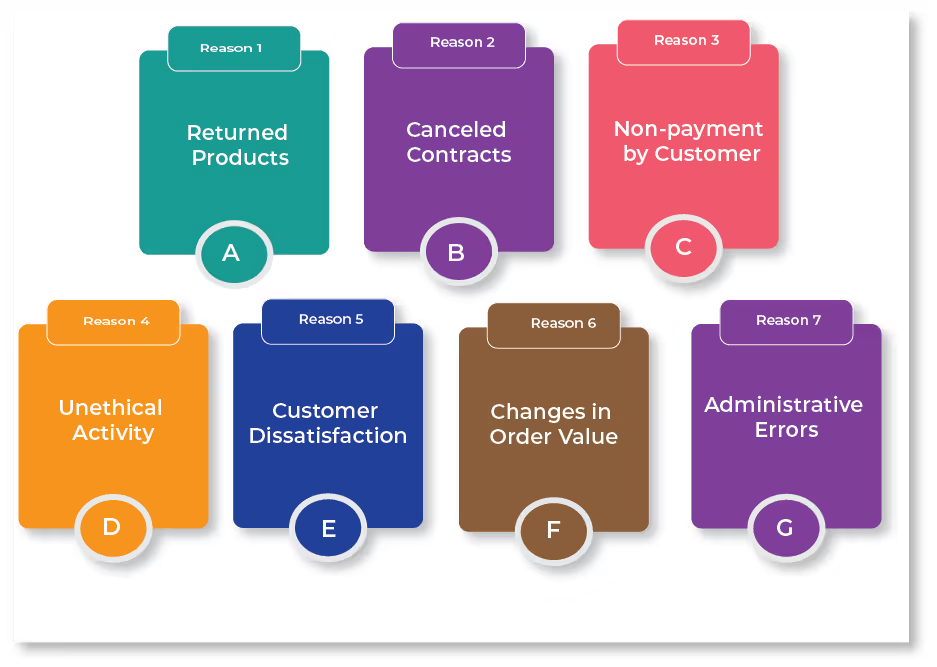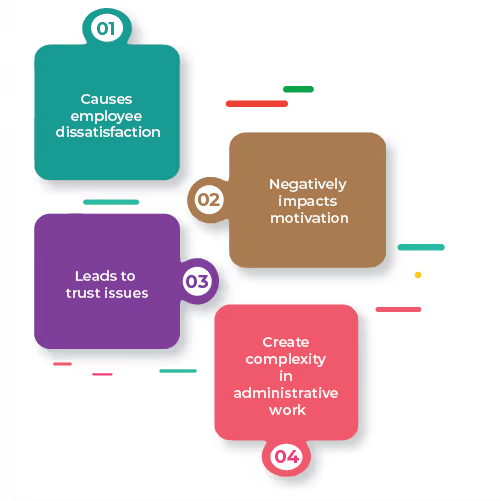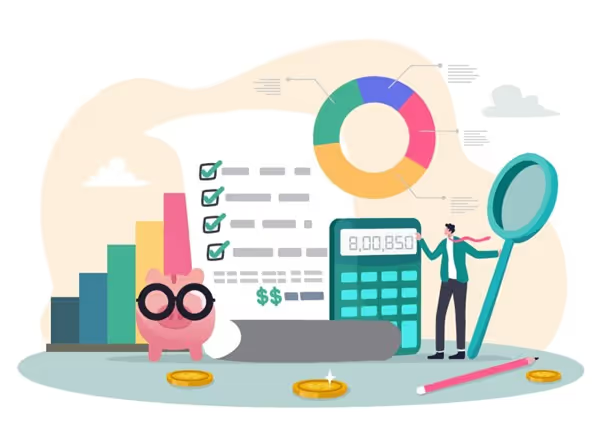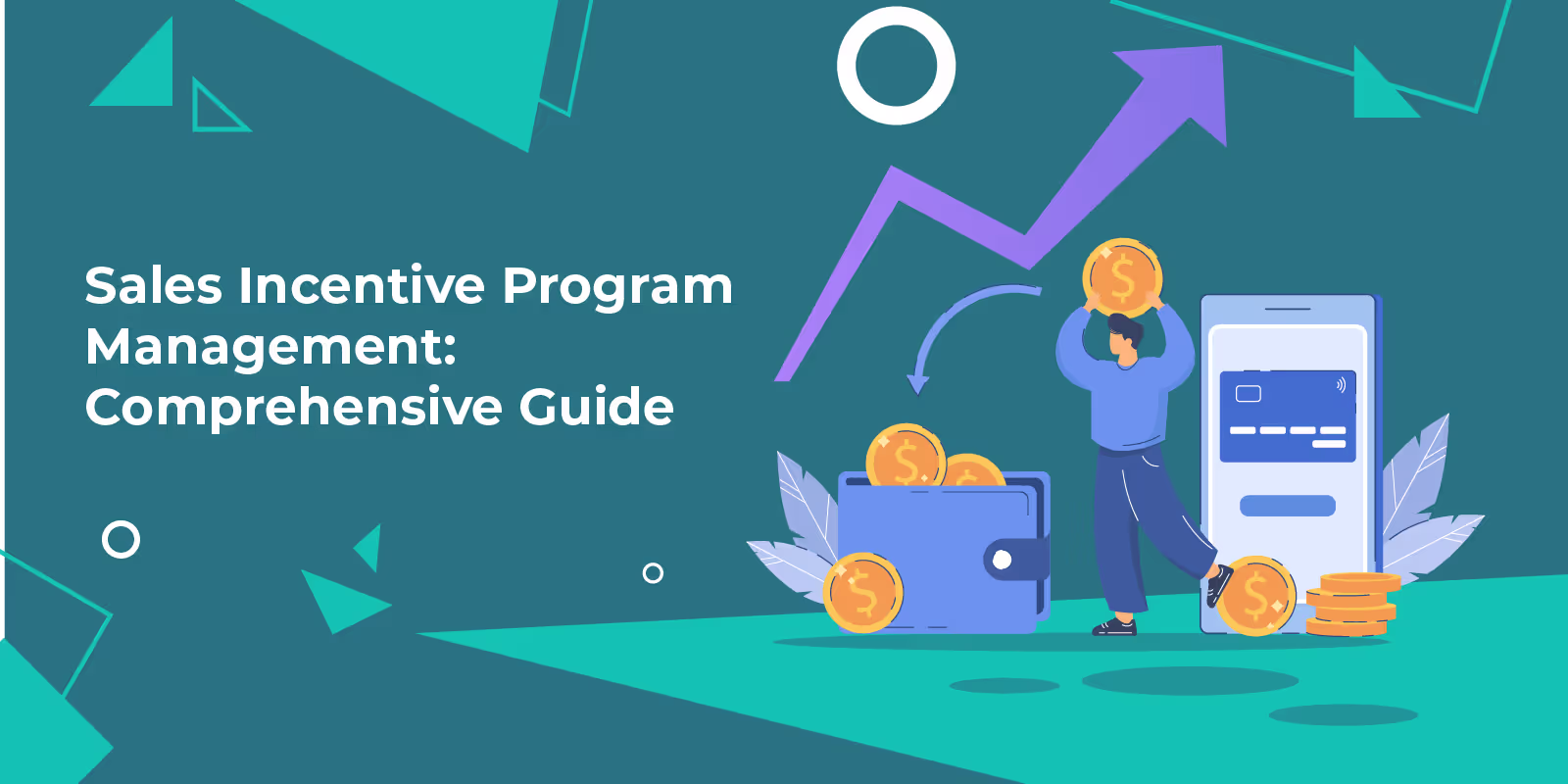
Blog
Understanding Commission Clawbacks: Benefits and Drawbacks
July 5, 2024


Key Insights
Imagine this scenario: A sales rep puts a lot of effort into closing a deal. The company timely rewarded them with a commission.
Everything went fine when suddenly the customer canceled the contract after two months of signing.
The first consequence of this cancellation fell on the sales rep. Their hard-earned commission was reclaimed.
Without question, it doesn't feel right when your paid commission gets taken back!
Unfortunately in sales, there is a clause that approves revoking your paid commission.
Rightfully it is termed “claw-back.”
So what are the chances of such a recovery happening? What are the advantages and disadvantages of clawbacks in your sales commission management?
To begin with what clawback commission even means?
Let's check!
What is a Clawback Commission?
Sometimes, a signed contract can be revoked. A purchased product can be returned. A closed deal can be canceled. Or the payment process has not been fulfilled.
With the long sales journey and onboarding processes, it so happens that by the time this repelling happens, the sales rep is paid their commission.
This can create an imbalance in the company's financial records.
To overcome such financial gaps, companies create a provision where they can reclaim the paid commissions if certain conditions are not met. This taking back of paid commissions under certain conditions is called clawback.
Companies include this clause in the sales rep employment contract to prevent overpaying when the expected result is not realized.
What is an example of a commission clawback clause?
A salesperson in the SaaS industry earns a commission based on onboarding new clients. They get their commission paid as soon as the contract is signed.
But here is the clause: if the client cancels the contract within six months then the sales rep must repay a portion of the commission.
For example, if the contract is canceled within three months then the sales rep needs to repay 50% of the received commission.
This commission clawback clause example shows that implementing such clauses will ensure that sales reps focus not just on closing deals but building strong customer relationships. It will also ensure that sales reps generate potential leads with a high customer lifetime value.
This helps reduce the risk of paying commissions on deals that do not bring a return on investment or long-term value to the company.

Why Do Businesses Use Clawbacks?
From a sales rep's point of view, clawback seems cruel. Your months of hard work are being taken back from you!
But businesses have their own reasons why clawback is necessary in their financial management and business operations:
To protect the company’s finances
Clawbacks safeguard the company’s financial balance from overpayment. It ensures that employees are not paid any incentive that later becomes invalid.
To ensure customer retention
Adding a clause like clawback in the incentive program will ensure that sales reps focus on potential leads with high customer lifetime value and build relations that ensure retention.
It prevents unethical practices
With incentives, sales reps might start focusing on just closing the deals. Implementing clawback will ensure they focus on long-term goals of relationship building and customer retention.
Maintain Critical Cash Flow
Reclaiming commissions of invalid sales will help maintain the company's cash flow. It ensures that available funds are used resourcefully without overpayment or wastage.
Given these reasons, clawback makes sense. From a business perspective, it only seems logical and right to implement such measures.
Why do commission clawbacks happen?
A sales rep works with all their motivation and grit to close a deal.
Unfortunately, the sale did not complete the cycle even after closing and there are quite a few reasons for it.
All these incomplete reasons ultimately lead to a commission clawback:

Returned Products: When the customer returns a product or receives a refund.
Canceled Contracts: When a contract is canceled before completing the agreed duration.
Non-payment by Customer: When the customer fails to make the payment for the product or service.
Unethical Activity: When it is found that a sales rep used fraudulent and unethical means to close deals.
Customer Dissatisfaction: When customer dissatisfaction leads to the return of a product or cancellation of a contract.
Change in Order Value: When a significant change in order value happens like discounts or partial cancellation, the loss is balanced through clawback.
Administrative Errors: When administrative errors cause wrong payments or transactions.
There are various scenarios where clawback can occur and the sales rep has to pay back.
However, all these scenarios show a positive organizational approach towards sustainable business and long-term strategy.
The advantages of clawbacks clause in your incentive program
When you come across the word “claw”, it brings to mind the claws of an attacking bear or an eagle swiftly landing to claw its prey.
The concept of claw-back typically brings to mind negative scenarios.
However, clawback clauses have their advantages. It cannot be simply categorized as a cruel act by the company just to snatch the paid reward from an employee.
So what are the benefits commission clawback clauses provide to your business operations? Let's check:

Clawback reduces financial risk
Adding a clause that commissions can be taken back when certain conditions are not fulfilled prevents overpayment and helps balance the financial sheet.
Clawback protects against fraud
Sales commission clawback policy acts as a legal protection against fraud or misconduct. This discourages unethical sales practices and sends out the message that commission can be reclaimed when earned the wrong way.
Clawback promotes long-term growth
Clawback ensures that sales reps focus on high-quality leads and work on customer relationship building. This encourages sales behavior that contributes to sustainable and long-term growth.
Clawback encourages accountability
With clawback clauses, employees will be aware of the criteria for earning and losing commissions. This makes sales reps accountable for their work thereby fostering a culture of responsibility and integrity in the organization.
In short, claw-back is clawing the fraudulent, unethical, and misconduct from your operations.
Through these clauses, commission clawback promotes fairness, transparency, and accountability.
Hence, the clawback commission clause is a guardian of your company’s financial health and reputation.
The disadvantages of clawbacks clause in your incentive program
Looking only at the brighter side of clawback sales commission, we might overlook the potential challenges and risks that exist.
We need to acknowledge and address these bottlenecks to ensure we handle the situation comprehensively.
So what are these disadvantages that we need to address to make the best use of clawback commission? Let's check:

Clawback causes employee dissatisfaction
Even after sales reps put the required effort to close deals, customers might return products or cancel contracts. When commissions are clawed back due to reasons beyond the salesforce's control it can lead to their dissatisfaction.
Clawback negatively impacts motivation
Clawback forces sales reps to work by the rulebook. They will think twice while taking risks or making innovative decisions. This can lead to demotivation and disengagement.
Clawback leads to trust issues
Adding a commission clawback policy in the incentive program makes sales reps feel that the company does not trust their work. This sense of mistrust negatively affects their morale and thereby the overall organizational culture.
Create complexity in administrative work
Clawback calls for tracking of sales journeys before and after the signing of a contract. This requires detailed tracking of sales, performance metrics, and other contract clauses. It makes the administrative work burdensome.
Companies with a sales commission clawback policy must be well prepared to handle these drawbacks.
Address these limitations and find probable solutions to overcome these negative impacts.
It will help in enhancing your sales management, business operations, and overall organizational culture.
5 best practices for using clawback clauses
Clawback must be implemented with care.
Though the benefits of implementing commission clawback clauses are long, there are a few things to keep in mind.
Here are five best practices that will help you while carrying out clawback sales commissions in your operations:
- Always seek legal help while drafting a clawback clause. This will ensure that you comply with the legal requirements and labor laws promptly.
- Prepare your parameters for clawback reasonably. For example, reclaiming incentives can be due to canceled contracts, customer returns, etc.
- Provide a clear explanation to your salesforce why commission clawbacks are implemented. Being clear and transparent about its relevance enhances its acceptability.
- Review and update your commission clawback clause with changing market and industry trends. This helps maintain its relevance and effectiveness among the salesforce.
- Automate your clawback process. Incentive automation solutions like Kennect can streamline your process, reduce administrative burden, and ensure consistency in the process.
Clawback is not easy to implement. There are consequences and after-effects to be anticipated.
Applying these best practices helps you be mindful of the impact clawback has on both the employee and the company.
Final Thoughts
In the beginning, clawback seems a rather unfair provision. Taking back what was rightfully earned through consistent hard work and effort.
But on a closer look, it becomes clear that clawback is a necessary clause for the sustainable growth of the business. All it does is put sales reps accountable for building long-term relationships with customers with high customer lifetime value.
When companies provide the logic and relevance behind the implementation of clawback, sales reps will understand its necessity and be ready to accept its terms.
However, it's upon the company to ensure fairness, clarity, and transparency to their salesforce.
A simple step is by automating your clawback implementation process.
With automation, affected salesforce will receive timely notification of clawback and accurate calculation of the amount to be deducted.
From the employee perspective, it provides a sense of fairness about the clawback provision and helps understand its clauses.
While from the company's perspective, it streamlines the entire process to reduce the administrative burden.
With our cutting-edge solution, Kennect automates your entire sales incentives and clawback process.
Remove spreadsheets and errors from your incentive management. To know more about our solution, Book A Demo NOW!
ReKennect : Stay ahead of the curve!
Subscribe to our bi-weekly newsletter packed with latest trends and insights on incentives.
Thank you! Your submission has been received!
Oops! Something went wrong while submitting the form.
Your data is in safe hands. Check out our Privacy policy for more info















